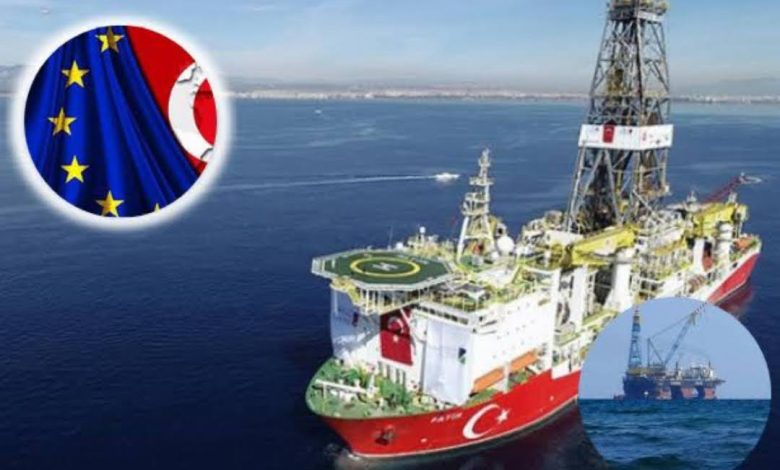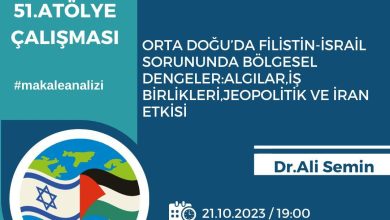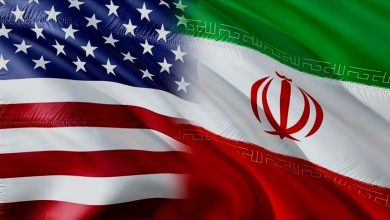An Analysis Towards the Approach of the EU to the Ongoing Dispute Between Turkey and Greece in the Eastern Mediterranean

The Eastern Mediterranean region witnessed several disputes throughout the years especially after significant energy resources were discovered in the region. Today it is expected to have 3,5 trillion m3 gas reserves (Örmeci, 2015). While explorations were increasing the geopolitical importance of the region, disagreements over maritime delineation and competition between Turkey and Greece over the European energy market increased too (Zareba, 2020). Also, new alliances like East Mediterranean Gas Forum (EMGF) were established after explorations. Recently, historical tensions in the region revived after Turkey’s research activities in the Mediterranean Sea under the Blue Homeland Doctrine (Fouad, 2020). This essay examines explicitly the EU’s approach to the current dispute between Greece and Turkey in the Eastern Mediterranean region. In order to understand the EU’s approach, I will specifically look at the declarations and statements of the member states and EU officials.
The ongoing dispute between Turkey and Greece emerged after Oruc Reis research vessel starts research activities in the south of Kastellorizo Island (BBC News, 2020c). The tension started to deepen after military vessels started to escort Oruç Reis. Later on, it intensified when Oruç Reis continued to research around the Greek Cypriot Administration of Southern Cyprus (GCASC) (Adar and Toygür, 2020). Prospection of hydrocarbon resources and delivering them to the European market started to become a problem only after 2010 but it has historical roots (Kısacık, 2020). According to Fouad, (2020) all disagreements between Greece and Turkey over Mediterranean and Aegean disputes originate from maritime delineation disagreements. In those two disputes both Turkey and Greece have different arguments.
Greece argues that the Kastellorizo Island has an exclusive economic zone (EEZ). Greece declared that EEZ of the Kastellorizo Island according to “equality principle” in the international law and the Article 121 of United Nations Convention on the Law of the Sea (UNCLOS). According to UNCLOS Article 121 if an island includes a human settlement, then this island can declare an EEZ (Fouad, 2020). That is why they claim that their argument is legal and Turkey’s exploration activity near to the island is violating its sovereignty and the international law. Greece presents its claims about EEZ on the Seville map. Besides, they claimed that Turkey deteriorates regional stability and escalates conflicts due to its aggressive, unilateral actions and irreconcilable policies (Aday and Toygür, 2020).
Since Kastellorizo Island is closer to the Turkish mainland than Greece mainland, Turkey claimed it cannot have EEZ and it can only have maximum 12 nm territorial sea by giving reference to previous International Court of Justice (ICJ) decisions on that issue (Zareba, 2020). Otherwise, this will result with the loss of a great amount of Turkish EEZ in the region even though it has the longest shore to the Mediterranean Sea according to Mr. Erdoğan (BBC News, 2020a). Therefore, they have a different understanding about delineation agreements with other states while Greece and GCASC prefers a “cross-line” (it enables greater EEZ to GCASC and unfair according to Turkey). Turkey adopts a “straight line” and this resulted in overlapping areas which they claimed sovereignty over (Şahin, 2019). Turkey under its Blue Homeland Doctrine emphasizes its sensitivity over Northern Cyprus and its concerns to exercise its sovereignty over its own EEZ and to exploits resources (Aday and Toygür, 2020). Turkey demanded a “proportionate” and “equitable” solution to maritime delamination since “equal” EEZ claims of small Greek islands and GCASC violates international law and its sovereignty according to Turkey (Şahin, 2019).
The EU was involved in the dispute after Greece and GCASC call the EU member states to respond the “illegal” actions of Turkey which violate Greece and GCASC sovereignty in the Eastern Mediterranean. Because according to the Lisbon Treaty Article 47, if a member state’s sovereignty is violated by a third state, the other members of the union would act in accordance with the “solidarity” principle (Deutsche Welle, 2020). Also, energy security concern of the EU necessitates its involvement to dispute because EU seeks energy alternatives that end its dependency on Russian gas since the 2014 Russian-Ukrainian crisis (Fouad, 2020). That is why EU supports the EMGF although it excludes Turkey and becomes a political alliance against Turkey (Fouad, 2020). To a certain extent, this position of the EU in the EMGF and its approach to dispute between Turkey and Greece in the Eastern Mediterranean region against Turkey is not objective and neutral.
Rehman and Abbas, (2020) claimed that since Greece and GCASC are members of the EU and their wide EEZ understanding is compatible with the EU’s objective of diversification of energy resources, the EU is not neutral to assess Turkish understanding of “equitable solution of maritime delineation”. Therefore, all the EU members assess Turkish thesis and actions in Eastern Mediterranean as “illegal” due to their energy needs and they describe Turkey as the uncompromising, escalator and aggressor which disrupts stability in the region (Küçükosman, 2020). For instance, overlapped claims over disputed waters represented as the waters of GCASC and Greece by the EU officials in their statements (BBC News, 2020c). Also, EU officials held responsible Turkey for causing the tension in the Eastern Mediterranean region. For example, Leyen stated that; if Turkey continues to its unilateral and provocative actions, the EU can apply a range of measures in its “toolbox” which includes harsh and soft measures (BBC, 2020b). However, the EU officials ignored Turkey’s calls for negotiation and openness for dialogue to settle dispute and they did not react Greece’s provocative acts like agreement between Egypt and Greece as they did against Turkey (Kısacık, 2020). Generally, the EU officials and member states ignored the historical roots of the dispute between Turkey and Greece. They declared that the “illegal” and “unilateral” actions of Turkey in the Eastern Mediterranean region are the actual reason of dispute. However, dispute is not appeared suddenly due to the research activities of Oruç Reis vessel. Instead, it is a continuation of historical disagreements between Turkey and Greece for years and essentially it originates from different international law perspectives adopted by both sides (Şahin, 2019).
Overall, the EU member states failed to respond together as a “Union” jointly because in the EU different states adopted different approaches against Turkey. Even though Greece demanded hard sanctions from the EU against Turkey in line with the “solidarity” principle of the Lisbon Treaty only “mild sanctions” could be adopted by the EU against Turkey due to concerns of Germany about the refugee agreement. The only common approach in the EU regarding this dispute is their joint declarations stating that Turkey violated international law, Turkey as an escalator state should stop its activities and the agreement between Turkey and Libya is illegal. But beyond that there are divergences in the EU (Erlanger, 2020).
For example, Greece, GCASC and France adopted an aggressive approach against Turkey and stated that the EU should adopt serious sanctions against Turkish violation of international law and Greek sovereignty (Aydintasbas and Ülgen, 2020). They made joint military maneuvers. Also, France sold military equipment to Greece and deployed its military vessels to the Mediterranean Sea to show its support to Greece. Italy, Malta, and Spain try to protect their interests in the union, and they consider the need to diversify energy resources of Europe. That is why they declared that they are supporting Greece and GCASC. Also, they tried to act with deliberation because they were aware the importance of maintaining relations with Turkey especially in terms of migration agreement. Baltic and Eastern European states in line with their interests did not prefer harsh sanctions over Turkey due to Turkey’s position as an important NATO member. Germany as the president of Council of European Union approached with caution (Adar and Toygür, 2020). Merkel stated that small disagreements can immediately turn to conflicts (BBC News, 2020a). That is why Germany adopted a conciliatory role between Greece and Turkey rather than strict sanctions since it is important to cooperate with Turkey due to Syrian refugees in Turkey (Adar and Toygür, 2020).
To sum up, the EU approached the dispute between Turkey and Greece in the Eastern Mediterranean with its individual energy concerns and ignored the historical roots of the problem and different international law approaches adopted by Turkey and Greece. That is why the EU failed to respond to the dispute in a neutral and united manner. Member states mostly adopted different positions according to their differentiated interests and their individual relations with Turkey. Finally, “solidarity principle” in the Lisbon treaty just “paid lip service” by member states apart from France other EU members supported Greece just in their discourses.
Buse Kulaksız



